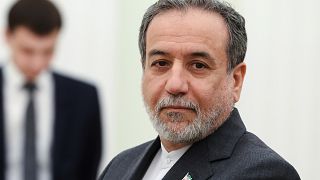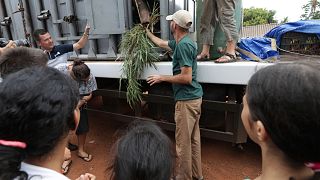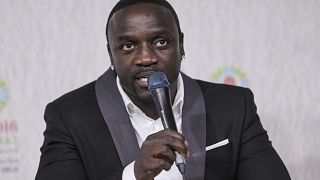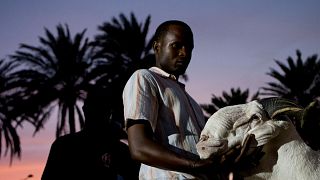Senegal
Trawlers fishing under the swarms of seabirds in the fishy waters of Senegal sometimes see a French plane flying towards them at low altitude and turning over their heads. They know they are being watched.
The Falcon 50M of the French Navy, which scans the Atlantic with its radar, with five soldiers and a Senegalese inspector on board, participates in the surveillance that Senegal exercises over its waters and fisheries. This vigilance is strategic, as fishing is so important to the economy and life of the country.
Senegalese or foreigners, the crews who cast their nets there are far from imagining the meticulous organization at work on board the tri-jet with the blue-white-red cockade as it begins a curve that tests the stomachs of the AFP journalists on board.
"By the right, we have an echo at eight nautical miles", reports the radar operator at the back of the cramped cabin. His screen is swarming with white and red arrows that show the density of traffic in the northern part of Senegal's Exclusive Economic Zone (EEZ), near Mauritania. Under each arrow: a Senegalese or foreign industrial fishing vessel, or one of the Senegalese pirogues that scour the ocean by the thousands, or a large commercial tonnage.
Local artisanal fishermen still catch 80% of the total volume. But the fish are becoming scarce due to global warming and overexploitation, and they have been complaining for years about the damage caused by foreign fishing companies, particularly European and Chinese.
Protecting the resource is a key issue, says Captain Ibrahima Diaw, head of Senegal's Fisheries Protection and Surveillance Directorate: "There are 600,000 people working directly or indirectly in fisheries, and millions of people depend on them. It is important to monitor the exploitation of the resource.
From the Tropics to the Pole
The Falcon of the French Naval Aviation Flotilla 24F is seconded year-round to Dakar from the Lann-Bihoué base (western France) under agreements that illustrate the historical ties between the two countries. It brings its length to an effort that combines nautical means and an aircraft of the Senegalese armed forces. At 700 km/h, or 500 in patrol, we are fast from one point to another.
Behind the pilot and co-pilot, the two watchmen on the right and left gunwales, the radar operator and the fisheries inspector correlate the positions, the signals emitted by the vessels, the lists of licenses from the Senegalese administration and, in the end, the sighting. The radio crackles with azimuths and jargon in which "clear license" or "fishing" means that the vessel is in good standing.
''We're going to do a pass on him to see if the name he gives corresponds to the AIS" (Automatic Identification System, a kind of signature of the boat), announces the captain, Lieutenant Mathieu (the French army imposes anonymity on its personnel).
"Fishing. 1182. Confirmed", the radio said.
Senior Petty Officer Pierre-Andre, a radar operator, points to the white and red arrows on his screen: "You'd think that the white ones transmitting are the good ones. But there are many ways to fish illegally": fishing in prohibited areas, fishing with prohibited equipment, fishing without a license or flag... Fraudsters have software to tamper with the AIS. It happens that an AIS captured in Senegalese waters places the boat very far from the position where it is located, up to the North Pole, he says.
Food issue
Senegalese waters are a source of envy. Tuna, sardines, shrimp, lobster, octopus... they are among the richest in fish in the world. Fishing contributes to 3.2% of the Gross Domestic Product and 10.2% of exports, according to a 2022 report by the US Department of Agriculture.
When the data collected arouses suspicion, the plane descends and the watchmen take pictures. In the event of an infraction, a report is usually drawn up," explains Captain Djibril Diawara, commander of the central naval base in Dakar. In exceptional cases, the Senegalese Navy sends a boat with marine riflemen to board the offender, but "in recent years, we have not had to carry out such operations.
"We have carried out 35 boardings in 2022," says the director of fisheries surveillance. Boardings "on sight", he says: the vessels are sanctioned from a distance without being brought to the dock. But "35 is huge". The fines can reach 30 million CFA francs (45,000 euros), he said.
The Falcon aircraft seconded in turn to Dakar controlled nearly 600 boats in 2022, according to the French Navy. They have also conducted 25 rescue missions in the sub-region since 2020 and are involved in the fight against drug trafficking.











01:00
Pix of the Day: July 10, 2025
01:00
Pix of the Day: July 8, 2025
02:15
Small boat crossings by migrants in northern France on the rise
00:58
Senegalese PM Sonko says international order is shifting to a more balanced, multilateral world
01:00
Pix of the Day: July 3, 2025
02:22
Cameroonian marine conservationists trained as scientific divers